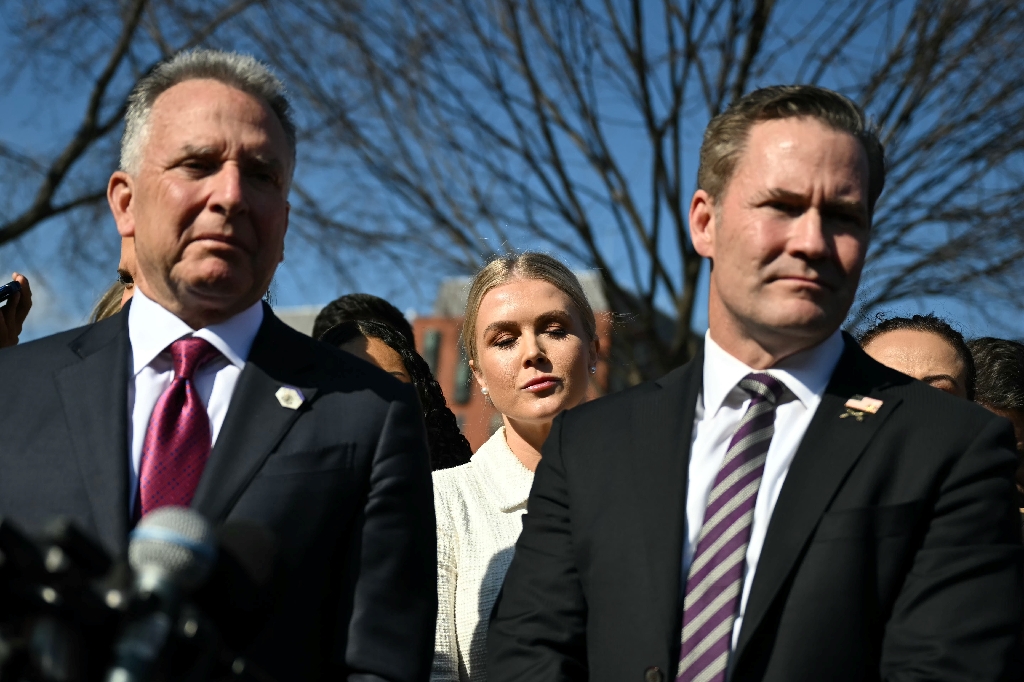The White House is on an offensive to discredit the Republicans’ impeachment inquiry into President Joe Biden, directing the media to call out “disinformation” in unusual messaging that observers warn could backfire.
The White House memo to the media came after Republican House Speaker Kevin McCarthy last week opened a formal impeachment inquiry, citing corruption allegations against Biden as he bowed to pressure from his party’s hardliners loyal to Donald Trump.
The probe has thus far not turned up any concrete evidence to back the claim that the president financially benefited from his son Hunter Biden’s business dealings, something that even some Republicans have conceded.
Apparently frustrated with media coverage that plays up evidence-free Republican claims, the White House has implored the editorial leadership at news outlets to “ramp up its scrutiny” of their allegations.
“Covering impeachment as a process story — Republicans say X, but the White House says Y –- is a disservice to the American public who relies on the independent press to hold those in power accountable,” the memo said.
“In the modern media environment, where every day liars and hucksters peddle disinformation and lies everywhere from Facebook to Fox, process stories that fail to unpack the illegitimacy of the claims… only serve to… obscure the truth.”
Attached to the memo was a 14-page fact- checker-style dossier rebutting seven Republican claims about the inquiry that it denounced as “all politics and no evidence.”
While behind-the-scenes efforts to influence news coverage are far from rare, the elaborate memo was perceived by some as direct instructions to the press that could complicate the fight against disinformation in a pre-election year.
It came across as a “pretty unusual” attempt to overtly influence coverage from a White House that “underestimates the optics of how this looks,” Roy Gutterman, a Syracuse University professor, told AFP.
In the hyper polarized US political landscape, some media outlets said the memo had put them in a difficult spot, exposing them to attacks as they report apparent inaccuracies in the case.
“News outlets that point out the weakness of the GOP case will now look like they’re kowtowing to White House pressure,” news website Axios said in a report.
Axios, which reported last week that the leader of the Republican impeachment inquiry, James Comer, had repeatedly distorted the findings of his probe into the Biden family, said the White House “messaging could backfire.”
The memo, intentionally or not, “opens the door to further attacks on the media or, even worse, sets the press up as an easy scapegoat for any undesired outcome of the impeachment probe,” wrote Boston Globe columnist Kimberly Atkins Stohr.
Even if the probe does not lead to an actual impeachment, the final outcome “will encourage more attacks on members of the media,” she said.
Peddlers of disinformation, she added, will have a field day painting the media as mere “White House mouthpieces” and the losers will be the public who will have an even “harder time deciding who to trust.”
The memo underscores how the White House appears to be battling out the graft allegations in the court of public opinion ahead of the 2024 presidential election that is expected to be a rematch between Biden and Trump.
McCarthy had been under pressure from hardline members of his party, loyal to Trump, for months to open an impeachment inquiry. They accuse him of profiting while he served as vice president under Barack Obama from his 53-year-old son Hunter’s foreign business ventures in Ukraine, which have been a constant target of Republicans.
The probe has not produced any evidence showing that Biden himself benefitted from his son’s business dealings or used his power as vice president to boost Hunter’s financial interests.
The Biden administration is on “strong grounds” if it wants to call out the “dubious claims” but it seems “a bit tone-deaf to issue guidance to the press,” said Jonathan Nagler, co-director of New York University’s Center for Social Media and Politics.
However, he added, the media can still uncover apparent disinformation in the case “without appearing to be doing the White House’s bidding.”
“It is very clearly the role of the press to expose disinformation circulated by political actors,” Nagler told AFP. – Anuj CHOPRA




